![What I Talk About When I Talk About Running 当我谈跑步时我谈些什么 [平装]](https://pic.windowsfront.com/19014556/rBEQWVFbnigIAAAAAAJjxNFel8QAADXPQKmaS4AAmPc509.jpg)

具体描述
内容简介
In 1982, having sold his jazz bar to devote himself to writing, Murakami began running to keep fit. A year later, he'd completed a solo course from Athens to Marathon, and now, after dozens of such races, not to mention triathlons and a slew of critically acclaimed books, he reflects upon the influence the sport has had on his life and on his writing. Equal parts travelogue, training log, and reminiscence, this revealing memoir covers his four-month preparation for the 2005 New York City Marathon and settings ranging from Tokyo's Jingu Gaien gardens, where he once shared the course with an Olympian, to the Charles River in Boston among young women who outpace him. Through this marvellous lens of sport emerges a cornucopia of memories and insights: the eureka moment when he decided to become a writer, his greatest triumphs and disappointments, his passion for vintage LPs, and the experience, after fifty, of seeing his race times improve and then fall back. By turns funny and sobering, playful and philosophical.作者简介
Haruki Murakami was born in Kyoto in 1949 and now lives near Tokyo. His work has been translated into forty-two languages. The most recent of his many honours is the Franz Kafka Prize.精彩书评
"Murakami's latest is a nonfiction work mostly concerned with his thoughts on the long-distance running he has engaged in for much of his adult life. Through a mix of adapted diary entries, old essays, reminiscences and life advice, Murakami crafts a charming little volume notable for its good-natured and intimate tone. While the subject matter is radically different from the fabulous and surreal fiction that Murakami (The Wind-Up Bird Chronicle) most often produces, longtime readers will recognize the source of the isolated, journeying protagonists of the author's novels in the formative running experiences recounted. Murakami's insistence on focusing almost exclusively on running can grow somewhat tedious over the course of the book, but discrete, absorbing episodes, such as a will-breaking 62-mile ultramarathon and a solo re-creation of the historic first marathon in Greece serve as dynamic and well-rendered highlights. Murakami offers precious little insight into much of his life as a writer, but what he does provide should be of value to those trying to understand the author's long and fruitful career. An early section recounting Murakami's transition from nightclub owner to novelist offers a particularly vivid picture of an artist soaring into flight for the first time."--Publishers Weekly
"Haruki Murakami has established himself as one of the most interesting and innovative novelists of the last two decades, combining pop culture with a magic-realistic sensibility that has garnered the author a faithful following. What I Talk About When I Talk About Running couldn't differ more from the rest of Murakami's work. This slender volume catalogs the author's love for that most solitary of athletic endeavors, though even Murakami's prodigious talent as a writer can't quite bridge the gap between the cultish world of hard-core running and a broader audience. This hit-and-miss effort—with something, literally, lost in the translation and some lazy writing—will be welcomed by a small (probably athletic) audience, but may not reach readers who aren't already on board with Murakami or running."
--Bookmarks Magazine
精彩书摘
AUGUST 5, 2005 . KAUAI, HAWAIIWho's Going to Laugh at Mick Jagger?
I'm on Kauai, in Hawaii, today, Friday, August 5, 2005. It's unbelievably clear and sunny, not a cloud in the sky. As if the concept clouds doesn't even exist. I came here at the end of July and, as always, we rented a condo. During the mornings, when it's cool, I sit at my desk, writing all sorts of things. Like now: I'm writing this, a piece on running that I can pretty much compose as I wish. It's summer, so naturally it's hot. Hawaii's been called the island of eternal summer, but since it's in the Northern Hemisphere there are, arguably, four seasons of a sort. Summer is somewhat hotter than winter. I spend a lot of time in Cambridge, Massachusetts, and compared to Cambridge--so muggy and hot with all its bricks and concrete it's like a form of torture--summer in Hawaii is a veritable paradise. No need for an air conditioner here--just leave the window open, and a refreshing breeze blows in. People in Cambridge are always surprised when they hear I'm spending August in Hawaii. "Why would you want to spend summer in a hot place like that?" they invariably ask. But they don't know what it's like. How the constant trade winds from the northeast make summers cool. How happy life is here, where we can enjoy lounging around, reading a book in the shade of trees, or, if the notion strikes us, go down, just as we are, for a dip in the inlet.
Since I arrived in Hawaii I've run about an hour every day, six days a week. It's two and a half months now since I resumed my old lifestyle in which, unless it's totally unavoidable, I run every single day. Today I ran for an hour and ten minutes, listening on my Walkman to two albums by the Lovin' Spoonful--Daydream and Hums of the Lovin' Spoonful--which I'd recorded on an MD disc.
Right now I'm aiming at increasing the distance I run, so speed is less of an issue. As long as I can run a certain distance, that's all I care about. Sometimes I run fast when I feel like it, but if I increase the pace I shorten the amount of time I run, the point being to let the exhilaration I feel at the end of each run carry over to the next day. This is the same sort of tack I find necessary when writing a novel. I stop every day right at the point where I feel I can write more. Do that, and the next day's work goes surprisingly smoothly. I think Ernest Hemingway did something like that. To keep on going, you have to keep up the rhythm. This is the important thing for long-term projects. Once you set the pace, the rest will follow. The problem is getting the flywheel to spin at a set speed--and to get to that point takes as much concentration and effort as you can manage.
It rained for a short time while I was running, but it was a cooling rain that felt good. A thick cloud blew in from the ocean right over me, and a gentle rain fell for a while, but then, as if it had remembered, "Oh, I've got to do some errands!," it whisked itself away without so much as a glance back. And then the merciless sun was back, scorching the ground. It's a very easy-to-understand weather pattern. Nothing abstruse or ambivalent about it, not a speck of the metaphor or the symbolic. On the way I passed a few other joggers, about an equal number of men and women. The energetic ones were zipping down the road, slicing through the air like they had robbers at their heels. Others, overweight, huffed and puffed, their eyes half closed, their shoulders slumped like this was the last thing in the world they wanted to be doing. They looked like maybe a week ago their doctors had told them they have diabetes and warned them they had to start exercising. I'm somewhere in the middle.
I love listening to the Lovin' Spoonful. Their music is sort of laid-back and never pretentious. Listening to this soothing music brings back a lot of memories of the 1960s. Nothing really special, though. If they were to make a movie about my life (just the thought of which scares me), these would be the scenes they'd leave on the cutting-room floor. "We can leave this episode out," the editor would explain. "It's not bad, but it's sort of ordinary and doesn't amount to much." Those kinds of memories--unpretentious, commonplace. But for me, they're all meaningful and valuable. As each of these memories flits across my mind, I'm sure I unconsciously smile, or give a slight frown. Commonplace they might be, but the accumulation of these memories has led to one result: me. Me here and now, on the north shore of Kauai. Sometimes when I think of life, I feel like a piece of driftwood washed up on shore.
As I run, the trade winds blowing in from the direction of the lighthouse rustle the leaves of the eucalyptus over my head.
I began living in Cambridge, Massachusetts, at the end of May of this year, and running has once again been the mainstay of my daily routine ever since. I'm seriously running now. By seriously I mean thirty-six miles a week. In other words, six miles a day, six days a week. It would be better if I ran seven days, but I have to factor in rainy days, and days when work keeps me too busy. There are some days, too, when frankly I just feel too tired to run. Taking all this into account, I leave one day a week as a day off. So, at thirty-six miles per week, I cover 156 miles every month, which for me is my standard for serious running.
In June I followed this plan exactly, running 156 miles on the nose. In July I increased the distance and covered 186 miles. I averaged six miles every day, without taking a single day off. I don't mean I covered precisely six miles every day. If I ran nine miles one day, the next day I'd do only three. (At a jogging pace I generally can cover six miles in an hour.) For me this is most definitely running at a serious level. And since I came to Hawaii I've kept up this pace. It had been far too long since I'd been able to run these distances and keep up this kind of fixed schedule.
There are several reasons why, at a certain point in my life, I stopped running seriously. First of all, my life has been getting busier, and free time is increasingly at a premium. When I was younger it wasn't as if I had as much free time as I wanted, but at least I didn't have as many miscellaneous chores as I do now. I don't know why, but the older you get, the busier you become. Another reason is that I've gotten more interested in triathlons, rather than marathons. Triathlons, of course, involve swimming and cycling in addition to running. The running part isn't a problem for me, but in order to master the other two legs of the event I had to devote a great deal of time to training in swimming and biking. I had to start over from scratch with swimming, relearning the correct form, learning the right biking techniques, and training the necessary muscles. All of this took time and effort, and as a result I had less time to devote to running.
Probably the main reason, though, was that at a certain point I'd simply grown tired of it. I started running in the fall of 1982 and have been running since then for nearly twenty-three years. Over this period I've jogged almost every day, run in at least one marathon every year--twenty-three up till now--and participated in more long-distance races all around the world than I care to count. Long-distance running suits my personality, though, and of all the habits I've acquired over my lifetime I'd have to say this one has been the most helpful, the most meaningful. Running without a break for more than two decades has also made me stronger, both physically and emotionally.
The thing is, I'm not much for team sports. That's just the way I am. Whenever I play soccer or baseball--actually, since becoming an adult this is almost never--I never feel comfortable. Maybe it's because I don't have any brothers, but I could never get into the kind of games you play with others. I'm also not very good at-one-on-one sports like tennis. I enjoy squash, but generally when it comes to a game against someone, the competitive aspect makes me uncomfortable. And when it comes to martial arts, too, you can count me out.
Don't misunderstand me--I'm not totally uncompetitive. It's just that for some reason I never cared all that much whether I beat others or lost to them. This sentiment remained pretty much unchanged after I grew up. It doesn't matter what field you're talking about--beating somebody else just doesn't do it for me. I'm much more interested in whether I reach the goals that I set for myself, so in this sense long-distance running is the perfect fit for a mindset like mine.
Marathon runners will understand what I mean. We don't really care whether we beat any other particular runner. World-class runners, of course, want to outdo their closest rivals, but for your average, everyday runner, individual rivalry isn't a major issue. I'm sure there are garden-variety runners whose desire to beat a particular rival spurs them on to train harder. But what happens if their rival, for whatever reason, drops out of the competition? Their motivation for running would disappear or at least diminish, and it'd be hard for them to remain runners for long.
Most ordinary runners are motivated by an individual goal, more than anything: namely, a time they want to beat. As long as he can beat that time, a runner will feel he's accomplished what he set out to do, and if he can't, then he'll feel he hasn't. Even if he doesn't break the time he'd hoped for, as long as he has the sense of satisfaction at having done his very best--and, possibly, having made some significant discovery about himself in the process--then that in itself is an accomplishment, a positive feeling he can carry over to the next race.
The same can be said about my profession. In the novelist's profession, as far as I'm concerned, there's no such thing as winning or losing. Maybe numbers of copies sold, awards won, and critics' praise serve as outward standards for accomplishment in literature, but none of them really matt...
用户评价
作为一位常年坚持跑步的人,我一直对村上春树的《当我谈跑步时我谈些什么》充满好奇。虽然我还没来得及细读这本书,但从身边跑友的只言片语和网上零星的介绍中,我能感受到这本书绝不仅仅是一本关于跑步技巧的书。我预想它更像是一次心灵的漫步,一次作者对自己内心世界的探索。我猜想,村上春树会在书中分享跑步对他生活、写作乃至人生观产生的深远影响,而不仅仅是关于马拉松训练的那些枯燥数据。我期待他能描绘出清晨在街头奔跑时的那种宁静与孤独,那种身体的疲惫与精神的澄澈交织在一起的奇妙感受。我也好奇他是否会提及跑步带给他的灵感,那些在奔跑中突然闪现的故事情节,那些让他茅塞顿开的写作思路。毕竟,对于一个作家来说,跑步可能不仅仅是一种运动,更是一种触发创造力的仪式。这本书或许能让我看到,一个伟大的作家是如何通过最简单、最纯粹的身体活动,来与自己对话,来理解世界,来创作出那些令人着迷的作品。我甚至想象,他会用他那特有的、略带疏离感却又充满洞察力的笔触,去剖析跑步这项运动背后隐藏的哲学意味,关于坚持、关于孤独、关于自我超越的意义。这本书,对我来说,就像一个神秘的宝盒,我迫不及待地想知道里面究竟装载了怎样的惊喜。
评分我一直对那些能够触及到生活最根本之处的作品情有独钟,而《当我谈跑步时我谈些什么》这个书名,恰好击中了我的好奇心。我本人并非一个经常跑步的人,但我对村上春树的文学作品一直有很高的评价,他那种独特的叙事风格和对细节的捕捉能力,总是让我着迷。我猜想,这本书会是一次非常个人化的分享,他会用他一贯的、略带慵懒却又充满智慧的笔触,来谈论跑步。我期待的不是技术指导,而是他通过跑步所获得的一种生活状态,一种与自我对话的独特方式。我猜测,他会描绘出清晨的街道,那种万籁俱寂中只有自己奔跑的声音,那种孤独却又无比清晰的自我存在感。我也好奇,他是否会提及跑步如何影响他的写作,例如,在长跑中,他是否会构思出小说的情节,或者,跑步是否能帮助他缓解创作的压力?这本书,在我看来,更像是一份关于“坚持”的宣言,它关于日复一日的重复,关于在枯燥中寻找意义,关于如何通过身体的运动来达到精神的澄澈。我希望通过这本书,能感受到一种关于生活的热情和对自我的探索。
评分作为一名对文学作品的表达方式非常敏感的读者,我曾听说过《当我谈跑步时我谈些什么》这本书。虽然我尚未接触过这本书的具体内容,但我对其独特的书名和作者的声誉,已经产生了浓厚的兴趣。我预想,村上春树在这本书中,不会仅仅停留在对跑步这项运动本身的叙述,而是会将其作为一种媒介,去深入探索更广泛的生活哲学。我猜想,他会以一种非常具象化的方式,将跑步时的感官体验,如脚下的路面、空气的温度、身体的律动,与他内心深处的思考和情感联系起来。我期待他能运用他标志性的、略带疏离但又充满细腻观察的文字,来描绘跑步带给他的那种孤独感,以及在这种孤独中他如何找到内心的平静与力量。我甚至想象,他会提及在长跑中,思维是如何变得异常活跃,那些看似杂乱无章的思绪,如何在运动的节奏中逐渐梳理清晰,最终形成他对世界、对人生的一种独特认知。这本书,对我而言,更像是一场关于“过程”的哲学探讨,它可能揭示出,在坚持一项看似枯燥的活动中,所能获得的内在成长和精神升华。
评分对于像我这样,对作者个人生活体验和其作品之间关系充满好奇的读者来说,《当我谈跑步时我谈些什么》是一个非常有吸引力的标题。我尚未阅读这本书,但仅凭书名,我就能想象出村上春树会以一种极其个人化的视角,来探讨跑步这项运动对他生活和创作的影响。我预感,他不会简单地罗列跑步的益处,而是会深入挖掘跑步所带来的那种独特的心理体验,那种在孤独中寻找慰藉,在疲惫中获得升华的过程。我期待他能用他那极具画面感和节奏感的文字,描绘出清晨街道上奔跑的景象,以及在这种宁静的环境中,他脑海中闪过的那些关于写作、关于人生、关于存在的种种思绪。我猜想,跑步对他而言,不仅仅是一种身体锻炼,更是一种与自我对话、与内心深处连接的仪式。这本书,对我而言,更像是一扇窗户,让我得以窥探一位伟大作家是如何通过最朴素的身体活动,来理解世界、创作出那些令人回味的作品。我希望,通过这本书,我能感受到一种关于“坚持”和“自我探索”的哲学,即使我不是一个跑者,也能从中获得深刻的启发。
评分我一直在寻找一本能够让我真正沉浸其中的书,而《当我谈跑步时我谈些什么》在我浏览书店时,似乎有着一种独特的吸引力。尽管我本人并非狂热的跑步爱好者,但我一直对那些能够深入探讨个人生活方式与内在世界联系的作品抱有浓厚的兴趣。我猜测,村上春树在这本书中,会以一种非常个人化、甚至可以说是私密的视角,来分享他与跑步之间的关系。我没有读过这本书,但从它的名字我就能感受到一种质朴和真诚。我期待他能描绘出跑步带给他的身体感受,那种肌肉的酸痛、呼吸的急促,以及最终达到某种极限时的释放感。更重要的是,我好奇他如何将这种身体的体验与他的写作联系起来。他是否会谈论跑步如何帮助他处理写作中的瓶颈?或者,跑步过程中萌生的思绪,如何最终成为他小说中的情节或人物?我猜想,这本书的魅力在于它能触及到我们生活中的某些普遍经验,即使不是跑者,也能从中找到共鸣。也许,跑步只是一个引子,真正探讨的是关于坚持、关于孤独、关于在日复一日的重复中寻找意义的永恒主题。我希望这本书能给我带来一些关于生活态度上的启发,让我看到,即使是最平凡的习惯,也能蕴含着深刻的人生哲理。
评分一直想入手,这次如愿买到,个人比较满意,品质有保证,下次还来!
评分This is the one of Haruki's masterpieces
评分丢丢贵啊~70多块钱~原来书这么小~心血来潮看看英文书~还是不错的
评分很好
评分是因为原版的缘故嘛?这么小的一本书竟然要七十多...
评分This is the one of Haruki's masterpieces
评分正在阅读中,寻找跑步中的正能量
评分值得一看,品质有保证,送货很快!
评分朋友推荐我看的,的书,我每一本都有,的内容很值得一读。'-.,,,-.(-),,'.',,,-62---.,'.'.--,-.''.',''-.--—,,—(),'.--1982,,.,',,,,.,,,-2005',,.:,,,,,.,.愿我们身边多一些主教般光明的使者,有更多人能加入到助人为乐、见义勇为的队伍中来。5,2005.,'?',,,,5,2005.',.'.,,.,',,.:',.','.',',,..,,--'--.--,.'.?.''..,,,,,,,.',.',',.,'--'--'.',.,'.,,...,'..,.-.,.--.,.,,,,,'!,.,.'--.,.,.,.,,,,..'.'.-.1960.,.(),'-.,.',''.--,.,'.,',.,:.,.,.,.,,,.'.-.,,.,,.,,.,.,-,156,.,156.186.,.'.,'.(.).'.'.,,.,,.','.',,.',.,,.',.,,,.,.,,'.1982-.',------.-,,'',.,.,'.'.--,--.'',.'---.,,.,,.'--'.'..''--'.',-..'.-,,,,,'.'-.,,?,'.,:,.,',',''.'',--,,--,..',','.,,',...
相关图书
本站所有内容均为互联网搜索引擎提供的公开搜索信息,本站不存储任何数据与内容,任何内容与数据均与本站无关,如有需要请联系相关搜索引擎包括但不限于百度,google,bing,sogou 等
© 2026 book.coffeedeals.club All Rights Reserved. 静流书站 版权所有

![Andrew Lost on Earth [平装] [6-9岁] pdf epub mobi 电子书 下载](https://pic.windowsfront.com/19032152/c3c2c584-a543-47d9-b787-e62ce88a366a.jpg)
![Hide&Seek 英文原版 [精装] [2岁及以上] pdf epub mobi 电子书 下载](https://pic.windowsfront.com/19033482/a47464b6-5681-4045-8be5-83891d6c6d7c.jpg)
![The Berenstain Bears' New Baby贝贝熊系列 [平装] [3-7岁] pdf epub mobi 电子书 下载](https://pic.windowsfront.com/19035386/d835170b-9a66-4420-9c18-c3abd7af32b1.jpg)
![The Age of Innocence[纯真年代] [平装] pdf epub mobi 电子书 下载](https://pic.windowsfront.com/19043410/rBEQYFGUU1IIAAAAAACmrGb-GsAAABR0gJ7a0EAAKbE305.jpg)
![Clouds (Let's-Read-and-Find-Out Science 1)[云] [平装] [4岁及以上] pdf epub mobi 电子书 下载](https://pic.windowsfront.com/19095678/802c2b53-0f0d-4c48-8c58-a4051c06d43b.jpg)
![Pinkalicious: The Princess of Pink Slumber Party (I Can Read, Level 1) [平装] pdf epub mobi 电子书 下载](https://pic.windowsfront.com/19282543/550bf09bNa946668f.jpg)
![Roly Poly Pop-up: Ocean 英文原版 [平装] [3-8岁] [魔术方块立体游戏书:海洋] pdf epub mobi 电子书 下载](https://pic.windowsfront.com/19456112/rBEhWlL4PWsIAAAAAAwOsYosyjsAAIV3wAMm2oADA7J298.jpg)
![National Geographic Readers: Alexander Graham Bell 英文原版 [平装] [5-8 岁] pdf epub mobi 电子书 下载](https://pic.windowsfront.com/19531954/54dbfe3fNbd8b5b67.jpg)
![Who Was Charles Dickens? [平装] [8-12岁] pdf epub mobi 电子书 下载](https://pic.windowsfront.com/19539153/552496d1Ne6881d11.jpg)
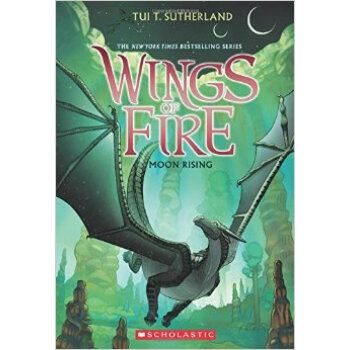
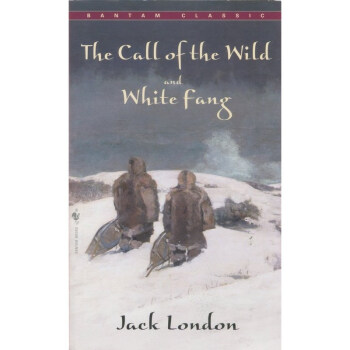
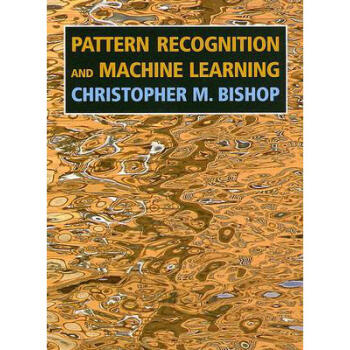
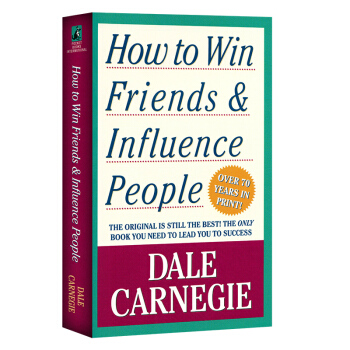


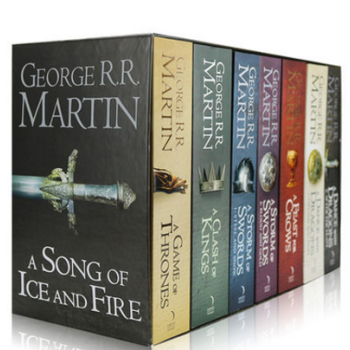


![Curious George Takes a Train 好奇猴乔治坐火车 [平装] [5岁及以上] pdf epub mobi 电子书 下载](https://pic.windowsfront.com/19000097/571fa7d1-086b-478f-b9de-775f7a0c5cbc.jpg)
![White on Black黑底白字(纸板书) 英文原版 [平装] pdf epub mobi 电子书 下载](https://pic.windowsfront.com/19009028/550be682N26fdb706.jpg)